Free water and electricity, housing for the poor, full rights for religious and ethnic minority, and a reduction in military spending were among the promises Ayatollah Ruhollah Khomeini, the founder of the 1979 Islamic Revolution and its first supreme leader, made in his speeches. But four decades later, not only have none of these promises been fulfilled but, in many cases, the Islamic Republic did exactly the opposite.
There is a bitter irony in reviewing Khomeini’s promises on the eve of the 42nd anniversary of the Revolution – made in a series of speeches before and after a March 1979 referendum on the creation of the Islamic Republic – as the Iranian people are enduring economic and public health crises without parallel. This new IranWire report is a collection of excerpts from Khomeini’s speeches and promises.
On February 5, 1979, a few days after his return to Iran from 15 years in exile, Khomeini described the Shah’s government as a “bayonet regime,” a “dictatorship,” and called it “illegitimate.”
But the Islamic Republic has repeatedly suppressed peaceful protests over the past 40 years. According to the Interior Ministry itself, more than 200 people were killed in protests during November 2019; Amnesty International put the death toll at 304, and Reuters reported that around 1,500 people had been killed in the protests.
In a speech on March 1, 1979, Khomeini acknowledged that the victory of the Revolution was the result of the people's struggles and promised to build housing for the poor. “We will build houses for the needy throughout Iran,” Khomeini said. "The wealth of the former Shah and his siblings is enough to build a country. We will act; this is not just talk. Authorities around Iran are obliged to pool what has been recovered [from the Shah’s regime] ... and turn them in to a bank which will ... build houses for workers, the needy, and for the poor, to make their lives prosperous.”
In the same speech, Khomeini promised free water, electricity and public transportation: “We will provide free water and electricity for the poor. We will provide free buses for the poor. [But] do not be appeased by just that ... we will magnify your spirituality and your spirits. We will bring you to the stature of humanity.”
Khomeini also spoke about the Islamization of banks and the reduction of “usury” in banking: “From now on, we have plans for the banks, to recover them from this deplorable situation, from this colonial situation. All these palaces, the ministries, where millions and billions of the nation's wealth have been spent, [they] must be turned into moderate Islamic institutions. Banks should change gradually and usury should end.”
But current the standard of living in Iran, the skyrocketing price of housing, high bank profits and news related to financial corruption cases linked to the names of prominent figures among government officials and their children and relatives, all show the futility of Khomeini’s promises.
Equality and ending discrimination of religious and ethnic minorities was another of Khomeini's promises. In a speech on March 29, 1979, he spoke about the rights of religious minorities: “All pieces of the Iranian nation have the same rights. Everyone’s rights will be respected. Religious minorities are respected in Islam and their rights will be granted. They will be free to practice their religion and to select their own representatives. Everyone is free. And those who say the clergy will deny you your rights are betraying our nation. The clergy are at the forefront of those who respect your rights.”
But after the Revolution the basic rights of religious minorities were ignored. The lives of many religious minorities were affected by death sentences, imprisonment, and exile, and many were forced to leave Iran.
Khomeini also spoke about women’s rights: “Islam cares more for women than men: it has given women more rights than men. What this means is that women have the right to vote. What we grant women is better than what West grants. Women have the right to vote and they have the right to be elected. All this will exist. Women will have authority over their own affairs ... they are free to work if they so choose.”
The Islamic Republic then imposed the hijab on women and today opponents of forced hijab are routinely prosecuted. Many women activists have been deprived of basic rights such as employment, child custody, and even attending sporting matches inside stadiums. Khomeini also spoke about the right to be elected to public office but the Council of Guardians has yet to accept a woman as a presidential candidate.
In another speech on March 30, 1979, Khomeini promised the Revolution would bring freedom and independence. Ahead of a referendum on the institution of Islamic Republic, over other forms of government, Khomeini said: “The Islamic Republic will bring us a free future, happiness and independence. The enemies of Islam want to disrupt this and our nation must insist and vote for the Islamic Republic.”
Khomeini also defended workers rights on May 1, 1979: “Islam grants you rights ... It grants rights to all working women and men, to all peasant women and men. Islam values them and will give them their rights. Let Islam manifest itself, let the Islamic Republic manifest itself with the enlightened rules of Islam.”
And yet the widespread workers' protests of recent years, due to unpaid salaries and bonuses, has been one of the most critical developments in Iran. Protesting workers have been fired from their jobs and even jailed.
Khomeini then said in another speech, on May 4, 1979, that Islam was a religion that did not accept terrorism: “If you adhered to logic, you would have discussed, you would debated. But you have no logic. Your logic is terror! The logic of Islam invalidates terror. Islam adheres to logic.”
The Islamic Republic has repeatedly assassinated its opponents and critics over the past 40 years. Terrorist activities ranging from the killings of writers, intellectuals and critics of the Islamic Republic inside Ira, to extraterritorial assassinations, accompanied the Islamic Republic from its beginning and continues to this day.
Khomeini also promised prosperity, freedom, independence, anti-corruption policies, equality of rights and justice, in many of his other speeches, none of which align with the policies of the Islamic Republic over the past four decades.
“Islam pays attention to the welfare of the people, the comfort of the people, and in this regard, it has not and will not discriminate between one part of society and another.” Khomeini said on May 14, 1979.
On June 4 of that year, Khomeini seemed to have anticipated economic sanctions on Iran and said that Iran did not need other countries: “[Let] other countries close their doors [to us] and besiege us ... we have a vast country ... we have no need for [others].”
Twelve days later, Khomeini warned critics of the Islamic Republic that the country had only one party: the “party of the oppressed.”
“If we had acted in a revolutionary manner from the beginning, when we broke the corrupt regime,” Khomeini said, and had “closed ... the corrupt press, [if we had] ... banned corrupt parties, punished their leaders, set up gallows in large squares ... these troubles would have not occurred. If we were revolutionaries, we would not have allowed these to exist. We would have banned all parties. We would have banned all fronts. [There should be] only one party and that is Hezbollah, the party of the oppressed.”
Khomeini also threatened Iranian intellectuals in a speech, on August 18, 1979: “Those who hold pens in their hands, those with the illusion of being intellectual ... we would like to treat them gently but they have to stop.”
A month later, Khomeini criticized the lack of freedom under the Shah: “Men were not free in his time, neither women, nor the press, nor radio, nor anything. There was no freedom. His name, his works and his propaganda were everywhere.”
“Freedom has its place. But promiscuity? Freedom means letting whoever to do whatever they want! I want to use heroin; it is not your business! I want to gamble! I want to do terrible things! The clergy opposes this; but not freedom of speech, not freedom of the pen, not enlightenment, not industry,” Khomeini said in the same speech.
On September 30, 1979, freedom was again the subject of Khomeini’s latest speech, during which he criticized the lack of freedom under the Shah’s regime.
“Freedom, which is in the interest of our nation and our country, was completely defeated,” Khomeini said. “The pens were broken, the tongues were cut off, and no one had the right to say a word. Anything that was said, anything in the press, anything on the radio and television, anything written, was in praise of a man who lost everything we had.”
In his speech of November 10, Khomeini declared that the Islamic Republic was not a dictatorship and that Islam did not allow dictators to rule.
“We therefore do not want to impose anything on our nation,” Khomeini said. “Islam does not let us to dictate. We are subject to the votes of the nation. However our nation votes, we will follow. We have no rights, God Almighty has not given us that right, the Prophet of Islam has not given us the right to impose anything on our nation.”
Khomeini once again spoke of equality on December 17, 1979, this time pointing to the equality of ethnic minorities.
“If there is no difference between Tehran or Paveh, between Isfahan or Torkman, between different Turkmen areas, in terms of governing, judging, carrying out the law, initiating policies, the issue who governs whom will not come up,” Khomeini said. “This babble stems from them being oppressed. The day that the Islamic government is materialized, as we have envisioned it and as God has envisioned it, everyone will be brothers, it will not be a problem if a Kurd rules Tehran or a Persian rules Kurdistan. It will not matter.”
“A ruler has no right to pay more attention to one area than to another,” Khomeini said in the same speech. “They have no right to develop one side of the country more than the other side.”
Forty-two years have passed since the Islamic Republic came to power. But many people in Kurdistan, Khuzestan and Sistan and Baluchestan still do not have access to basic amenities. Lack of drinking water, makeshift schools and cross-border labor are among the issues these provinces struggle with every day.
On January 4, 1980, Khomeini spoke about the compatibility of revolutionaries with the opponents of the Islamic Republic: “There has been no revolution in the world after which the [victor’s] actions were so humane [as ours], where those who opposed the revolution were given freedom. There has been no such thing. And that was because the Revolution was of the Iranian nation and for Islam.”
Khomeini then spoke, on August 16, 1980, about the courts. “Something of importance I need to say is about the precision of the judiciary. When the honor of the people, when the life of the people, when the property of the people is in your hands, do not be negligent. God forbid an innocent person be found guilty or a criminal who should be punished by Sharia laws goes free. ... [A judge must], and I say it boldly, be unmerciful.”
Judges of political cases concerning “dissidents” seem to have paid more attention to these words of Khomeini’s more than anyone else’s words over the past 42 years.
In a speech on August 17, 1980, Khomeini promised democracy in the Islamic Republic: “Today is not like the time of the tyrannical regime when the nation had no rights and everything was in the hands of one person or group. The nation is omnipotent. Everything is [decided] by the nation’s vote, and everything is for the benefit of the nation, God willing.”
On December 24, 1980, Khomeini considered politics the clergy’s rightful area of action, saying: “Politics is the right of the clerics, prophets, imams and scholars of Islam. But their politics is different from the politics of others.”
On February 8 of the same year, Khomeini spoke about human rights: “Islam both respects and practices human rights. It does not take away rights from anyone. It does not deprive anyone of their right to liberty. It will not allow anyone to dominate others, to deprive others of their right to freedom, in the name of freedom, and to deprive them of their right to independence, in the name of independence.”
Five days later, on February 13, Khomeini spoke about how a person becomes a dictator: “Dictatorship gradually emerges in a human being. At the beginning, he imagines himself a person who opposes dictatorship, but then some time later, he starts imposing his opinions. ... It is dictatorship when a man wants others to accept what he thinks with no reason. ... Another evil characteristic of a dictator is that he cannot back down from what he inspires. ... This is the greatest dictatorship that human beings suffer from: that what a person said should be done even if a country is destroyed.”
Three days later, Khomeini once again criticized the leaders of the previous government and spoke about the honesty of the officials of the Islamic Republic.
“Is the speaker of our parliament today like the former speakers of the parliament?” Khomeini asked. “Even those speakers of parliament who, by their own words, were patriots, were in fact aristocrats and belonged to classes that had [luxurious] lives.”
In his speech on March 5, 1981, Khomeini referred to the phrase “clerical dictatorship”: “They warm about a ‘clerical dictatorship,’ but this is a vain phrase and is said for an even more vain purpose. Show us clerics who are dictators. It is the duty of the nation to obey the clerics and not listen to the rhetoric and propaganda against the clergy.”
On March 15, 1981, Khomeini asked members of the military to not join any parties: “I urge all forces and commanders to not to join any political parties or any of other groupings. If the army or the Revolutionary Guards or other armed forces join a party, that army is doomed. Do not join any party, do not join any group. The principle of joining a party is not permissible for the army, for the Revolutionary Guards, for the military and law enforcement forces. It corrupts them.”
On April 13, 1981, Khomeini once again talked about the rights of religious minorities, especially Sunni Muslims: “The rights of everyone, including Sunnis brothers, Shia brothers, and those who belong to recognized religious minorities, their rights are protected by the constitution and Islam recognizes their rights and treats them with Islamic justice.”
A month later, Khomeini addressed opponents of the Islamic Republic: “Lay down your arms and return to Islam. Islam accepts you and Islam supports all of you. ... We want to accept all with open arms. We want all deviants to return to the right path. That is why Islam is here. ... Islam is the religion of mercy, the religion of justice. Religion is the law. Obey the laws of Islam and bow your head. Our Islamic country accepts all of you.”
On September 1, 1981, Khomeini called on the authorities to treat the opposition in an Islamic manner, but to punish them severely: “The republic is the Islamic Republic. Interactions, even with those who were identified as murderers, should be Islamic. They should be punished with intensity and severely. But they should only be punished for their actions, and no more abuse should be done.”
In August 1982, Khomeini spoke twice about judicial sentences for opponents of the Islamic Republic. On August 8, 1982, he advised judges to be fair and reminded them of their responsibility: “Judges who have power over life, property and the honor of others should pay attention, be diligent, and be careful not to condemn an innocent man to prison or, God forbid, execution. They have a responsibility. Even if you escape the responsibility put on you in this world, you cannot escape the responsibility that God has put on you.”
About two weeks later, Khomeini again addressed judicial officials and corrections officers, saying: “Directors of prisons and detention centers should be attentive; those in charge, and those carrying out orders, should be mindful that in the context of punishment by Islamic law, you cannot abuse someone who has been sentenced to death. It is not permissible to slap them. It is not right. This will draw retribution. If you slap a hostile person who is due to be executed, he has the right to slap you, and you have violated the Sharia law. Do not think that because a person is in prison, we should treat them badly. God willing, you do not and should not do it.”
On October 3, 1982, Khomeini once again compared officials of the Shah's time with officials of the Islamic Republic and spoke about the harmony between officials of the Islamic Republic with the people of Iran.
“Today, neither your leaders nor your commanders are from a tyrannical regime. Your government is not made up of tyrants. Your army, the Revolutionary Guard, your militia, your police and your military groups and law enforcement officers are not like [that of the Shah] or of the other countries. ... Your commanders are now of your own type, they are in your arms, just as you are the light in their eyes and you are in their arms.”
visit the accountability section
In this section of Iran Wire, you can contact the officials and launch your campaign for various problems






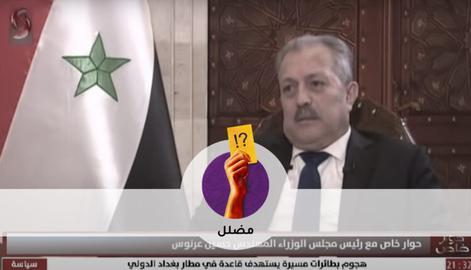

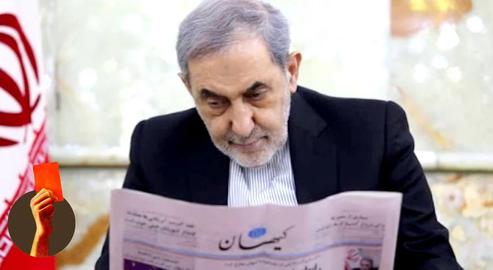

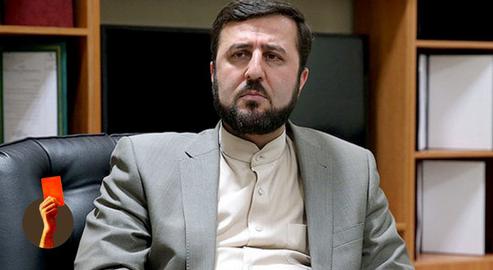
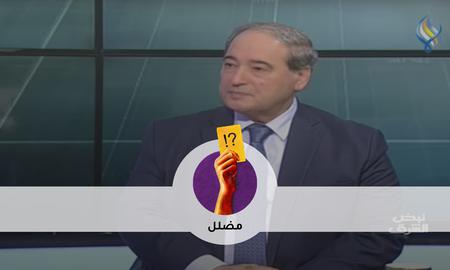
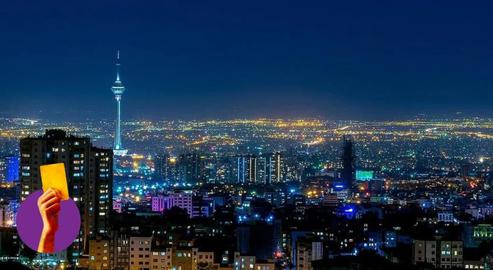
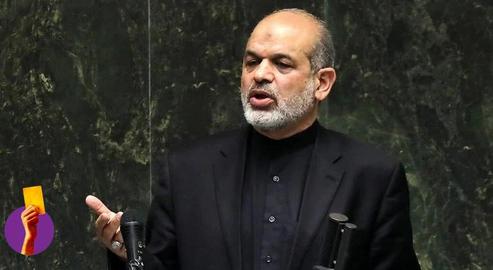
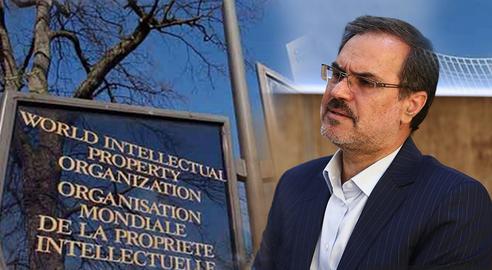

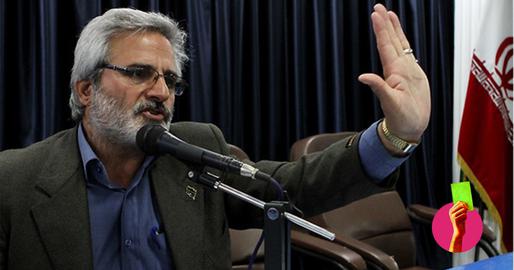
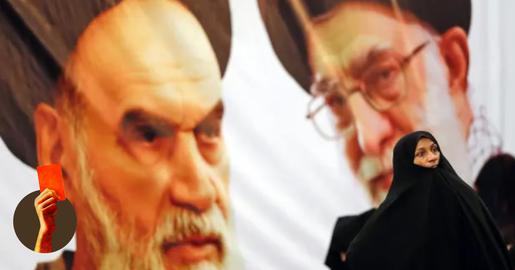
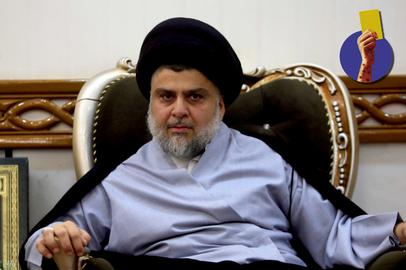
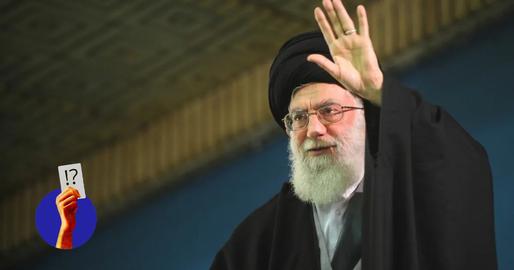

comments